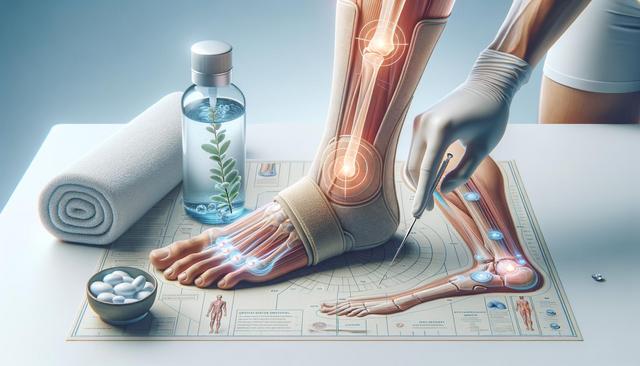Understanding Nocturnal Leg Pain
Leg pain at night can be both frustrating and concerning, especially when it interferes with restful sleep. Understanding what is the cause of leg pain at night can help guide appropriate treatment and relief strategies. Several factors contribute to nighttime leg discomfort, ranging from muscle fatigue to underlying medical conditions. Commonly, muscle cramps, also known as nocturnal leg cramps, are sudden, involuntary contractions that can cause severe pain and stiffness. These cramps often affect the calf muscles but can also involve the thighs or feet. They tend to occur when muscles are in a shortened position, such as when sleeping with flexed legs.
Other potential causes include poor circulation, nerve damage, or conditions like restless leg syndrome (RLS), which is characterized by an irresistible urge to move the legs. In some cases, peripheral artery disease (PAD) or deep vein thrombosis (DVT) may be responsible. Identifying the underlying cause is essential for effective treatment and lasting relief.
Common Causes and Risk Factors
There are a variety of contributing factors to consider when evaluating leg pain at night causes and relief. While some are lifestyle-related, others may indicate more serious health concerns. Here are several common causes:
- Dehydration: Lack of fluids can lead to muscle cramps and stiffness.
- Electrolyte imbalances: Low levels of magnesium, potassium, or calcium can trigger leg pain.
- Prolonged sitting or standing: These positions can reduce blood flow, leading to muscle fatigue and cramping.
- Medication side effects: Diuretics and statins are known to cause muscle pain in some individuals.
- Medical conditions: Diabetes, arthritis, and circulatory disorders can contribute to nighttime leg discomfort.
Understanding these risk factors can help individuals take proactive steps to reduce the likelihood of experiencing leg pain during the night.
Effective Home Remedies for Relief
For many individuals, home remedies can provide substantial relief from nighttime leg pain. Incorporating a few simple habits into your daily routine may help ease symptoms and prevent recurrence. Gentle stretching before bedtime, for example, can reduce muscle tension and improve flexibility. Hydration is another important factor; drinking enough water throughout the day supports proper muscle function and circulation.
Other helpful strategies include:
- Warm baths or heating pads: These promote blood flow and soothe tense muscles.
- Compression socks: These can improve circulation and reduce cramping.
- Elevating the legs: Helps manage swelling and enhances venous return.
- Massage: Regular massage can relax tight muscles and improve circulation.
When practiced consistently, these remedies may offer noticeable improvement in both the frequency and intensity of leg pain.
When to Seek Medical Attention
While many cases of nighttime leg pain are mild and manageable, persistent or severe symptoms should not be ignored. It’s important to consult a healthcare provider if the pain:
- Occurs nightly or disrupts sleep regularly
- Is accompanied by swelling, redness, or warmth in the leg
- Is associated with numbness, tingling, or weakness
- Does not respond to self-care measures
These symptoms may indicate a more serious underlying condition, such as nerve compression, vascular disease, or a blood clot. Diagnostic tests like blood work, Doppler ultrasound, or nerve conduction studies may be necessary to determine the exact cause and guide treatment. Early intervention can prevent complications and improve quality of life.
Preventive Measures and Lifestyle Adjustments
Preventing leg pain at night involves a combination of healthy lifestyle habits and awareness of potential triggers. Making small changes can have a significant impact over time. For instance, staying active during the day helps maintain muscle strength and circulation. Incorporating low-impact exercises like walking, swimming, or cycling can keep the legs strong and flexible.
Also consider the following preventive steps:
- Stretch regularly: Focus on the calves and hamstrings, especially before bed.
- Monitor nutrient intake: Ensure adequate levels of potassium, magnesium, and calcium in your diet.
- Wear supportive footwear: Proper shoes can improve posture and reduce strain on leg muscles.
- Limit caffeine and alcohol: These substances can contribute to dehydration and poor sleep quality.
Maintaining these habits consistently may reduce the frequency of nighttime leg pain and improve overall leg health.
Conclusion: Managing Nighttime Leg Pain Effectively
Leg pain at night can stem from a variety of causes, ranging from minor issues like muscle fatigue to more complex medical conditions. Understanding what is the cause of leg pain at night is crucial for determining the right course of action. Whether you’re addressing minor cramps or seeking help for chronic discomfort, a combination of home care, lifestyle changes, and medical guidance can make a meaningful difference. By staying informed and proactive, individuals can find effective ways to manage leg pain at night causes and relief and enjoy more restful, pain-free nights.




Leave a Reply